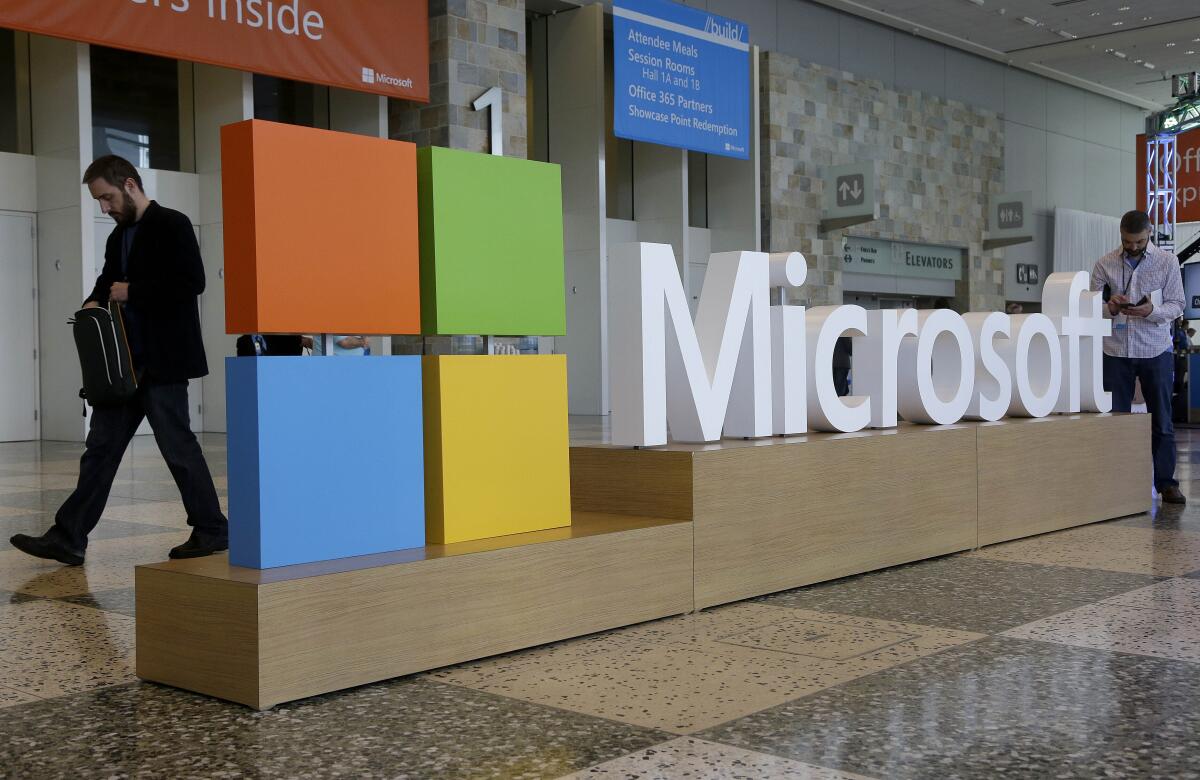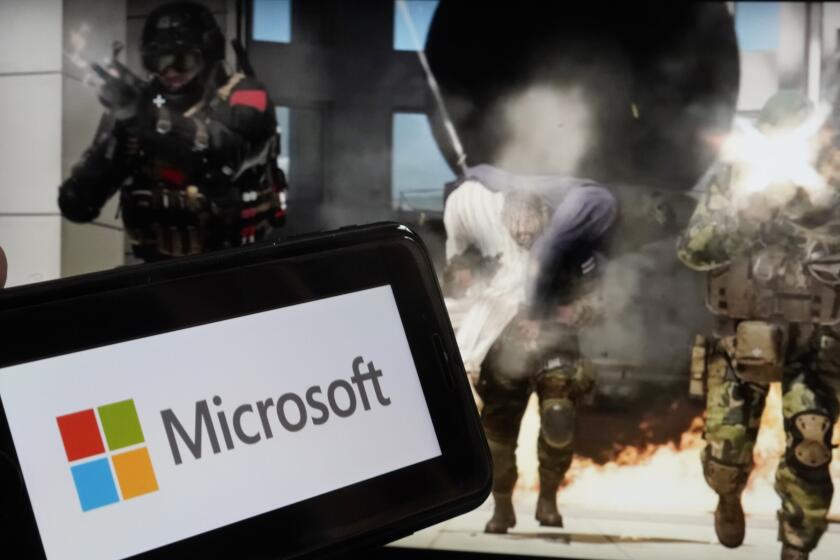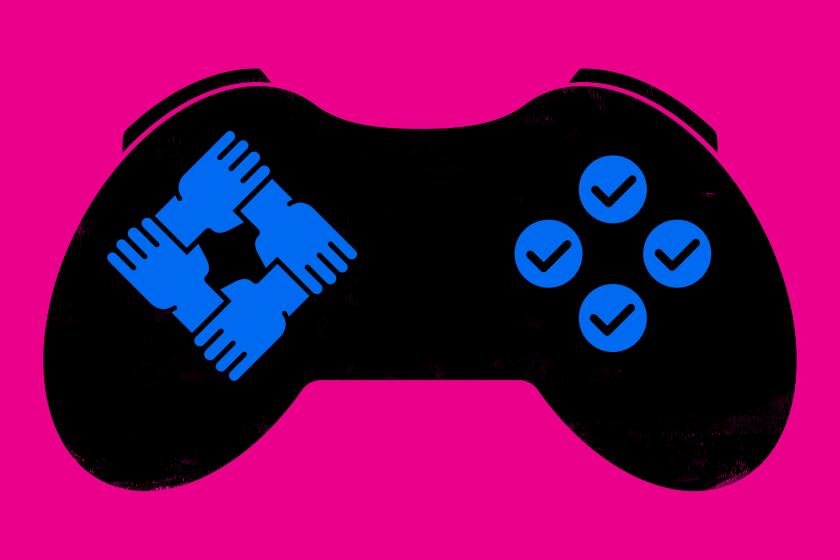What the Microsoft Activision deal means for labor unions

- Share via
Microsoft’s $69-billion acquisition of Activision Blizzard could provide the growing labor movement among video game workers a boost because of a labor neutrality agreement the company entered last year.
The agreement between the Communications Workers of America and Microsoft, which states that Microsoft will take a neutral approach when employees express interest in joining a union, kicks in at Activision Blizzard 60 days after the acquisition closes.
In a blog post, Microsoft President Brad Smith said the company was committed to its “innovative approach to union partnerships. ”
Microsoft’s purchase of ‘Call of Duty’ maker Activision Blizzard marks the biggest deal in video game industry history.
“Microsoft remains steadfast in our support of our current and future employees in whatever choice they make about their workplace and their representatives,” he said.
CWA President Claude Cummings Jr. called the acquisition, finalized on Friday, a “new day for workers at Activision Blizzard.”
“Over two years ago, workers at Activision Blizzard’s studios captured the country’s attention through walkouts and other protests over discrimination, sexual harassment, pay inequity, and other issues they were facing on the job,” Cummings said in a statement. “Their efforts to form unions were met with illegal retaliation and attempts to delay and block union elections.”
An Activision spokesperson declined to comment.
The deal, the union said, provides a path to collective bargaining for nearly 10,000 workers.
Video game workers have long decried so-called “crunch periods,” many of them dreading the months of grueling labor that lead up to a game’s release. Some workers have described sleeping at their desks or missing out on time with family and friends during this period; others struggle with anxiety and burnout.
Those and other grievances — including claims of discrimination and calls for fair and transparent pay — have led a growing segment of the industry’s workforce to unionize and push back against the romantic ideal that working on games is a dream worth sacrificing for.
The widening labor conflict has particular resonance in California, home to more gaming industry companies than any other state, according to the Entertainment Software Assn. trade group.
A State of the Game Industry survey released in January found that 53% of game developers are in favor of unionization. About one-fifth say they or their colleagues have actively discussed unionizing, according to the survey published by the Game Developers Conference and Game Developer, a trade publication.
Amid complaints about crunch times, claims of discrimination and calls for fair and transparent pay, more video game workers are seeking to unionize.
At the same time, video game voice actors and performers unionized under SAG-AFTRA are negotiating the terms of a new interactive media contract.
Under the labor neutrality agreement, covered employees will be able to communicate with one another and with union representatives about union membership “in a way that encourages information sharing and avoids business disruptions,” according to the CWA.
Should a disagreement arise between the CWA and Microsoft, the two organizations will work promptly to reach an agreement and will turn to an expedited arbitration process if they can’t.
This acquisition — and ensuing neutrality agreement — come after a series of labor disputes in which Activision Blizzard employees alleged that the company was a hostile, sexist, discriminatory workplace, something that Activision Blizzard has denied.
The Santa Monica-based company has pushed back on efforts by workers at two game studios it acquired, Raven Software and Blizzard Albany, which also unionized with help from the CWA last year.
Workers at a third studio acquired by Activision Blizzard, Boston-based Proletariat Inc., announced plans to unionize last December before saying that they would no longer seek an election, citing management’s “confrontational tactics.”
At that time, a spokesperson for Activision Blizzard said the claim was false and that Proletariat’s chief executive “was responding to concerns from employees who felt pressured” and who wanted more information.
“Now these workers are free to join our union through a fair process, without interference from management,” Cummings said. “Microsoft’s high-road approach should be the norm across the industry.”
More to Read
Inside the business of entertainment
The Wide Shot brings you news, analysis and insights on everything from streaming wars to production — and what it all means for the future.
You may occasionally receive promotional content from the Los Angeles Times.













